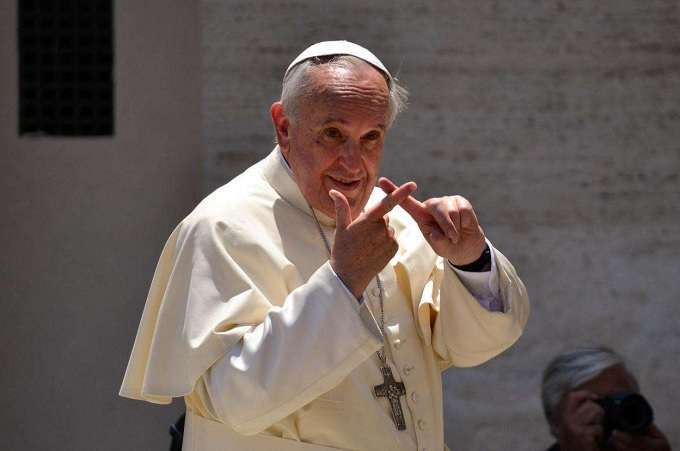With social platforms increasingly targeting so-called “fake news,” Pope Francis has decided to weigh-in, dedicating his message for the 2018 World Day of Social Communications to eliminating the spread of false information and providing the truth. Announced Sept. 29, the theme for the 2018 message is: “The truth will set you free: Fake news and journalism for peace.”
In a communique from the Vatican Secretariat of Communications, headed by Msgr. Dario Eduardo Vigano, it was said the Pope's message will be centered on “so-called 'fake news,'” which is namely “baseless information that contributes to generating and nurturing a strong polarization of opinions.”
Fake news, the communique read, “involves an often misleading distortion of facts, with possible repercussions at the level of individual and collective behavior.” Since the big players among social media companies, global institutions and even politics are now confronting the issue, “the Church too wishes to offer a contribution.”
To this end, the Church wishes to put forward “a reflection on the causes, the logic and the consequences of disinformation in the media. Her goal is also to help in promoting “professional journalism, which always seeks the truth, and therefore a journalism of peace that promotes understanding between people.”
World Day of Social Communications was established in 1963 with the document “Inter Mirifica” on the media of social communications, and was the only global celebration to be requested by the Second Vatican Council. The event is celebrated in countries throughout the world on the Sunday after Pentecost, which this year falls on May 13, 2018. The Pope's message for the event is typically published on the Jan. 24 feast of Saint Francis de Sales, patron of journalists.
Pope Francis has often spoken out on journalism and the need to provide accurate, constructive reporting that doesn't degrade or defame others. Journalists were the focus of Pope Francis' prayer intention for October 2016. In a video released announcing the intention, the Pope said “We need information leading to a commitment for the common good of humanity and the planet.” Specifically, he prayed that journalists, “in carrying out their work, may always be motivated by respect for the truth and a strong sense of ethics.”
Just two months later, in December 2016, the Pope gave an interview to a Belgian magazine in which he cautioned media to avoid several major temptations, including the desire to always focus on scandal — which he compared to “coprophilia,” a mental illness in which a person has an abnormal interest in feces. “Media I think have to be very clean, very clean and very transparent. And not fall — without offending, please — into the sickness of coprophilia,” the Pope said in the new interview. Coprophilia, or coprophagy, is technically defined as a condition in which a person has an abnormal interest and pleasure in feces or excrement. However, for Pope Francis, his use of the word referred to an attitude in journalism that always tries to communicate scandal.
Since people looking to the media frequently have “a tendency toward coprophilia” — meaning they take pleasure in and seek out scandalous news — and this attitude “can do a lot of damage.” However, he said media are also “the builders of a society,” and as such are meant to foster a fraternal exchange of ideas, to educate and to make one think. Media is not inherently evil, he said, but cautioned that we are all sinners, and even media “have their temptations.”
First of all, they can be tempted to slander or defile people, above all in politics, he said, and also warned against defamation, since “every person has the right to a good name.” To bring to light a problem from a person’s distant past and to hold them responsible, even if they have already rectified the situation, “is serious, it does damage, it nullifies a person,” Francis said. “There is not right to this. This is a sin and it does harm,” he said, pointing to another particularly harmful attitude in the media: “misinformation.”
Described by the Pope as telling only one part of the truth but not the other, Francis said that to do this: “This is to misinform. Because you, the viewer, you give them half of the truth. And therefore they cannot make a serious judgment on the complete truth.” Misinforming people “is probably the greatest harm that media can do. Because it directs opinion in one direction, taking away the other half of the truth,” he said, adding that if media stay away from these problematic attitudes, “they are builders of opinion and they can edify, and do an immense, immense good.”

